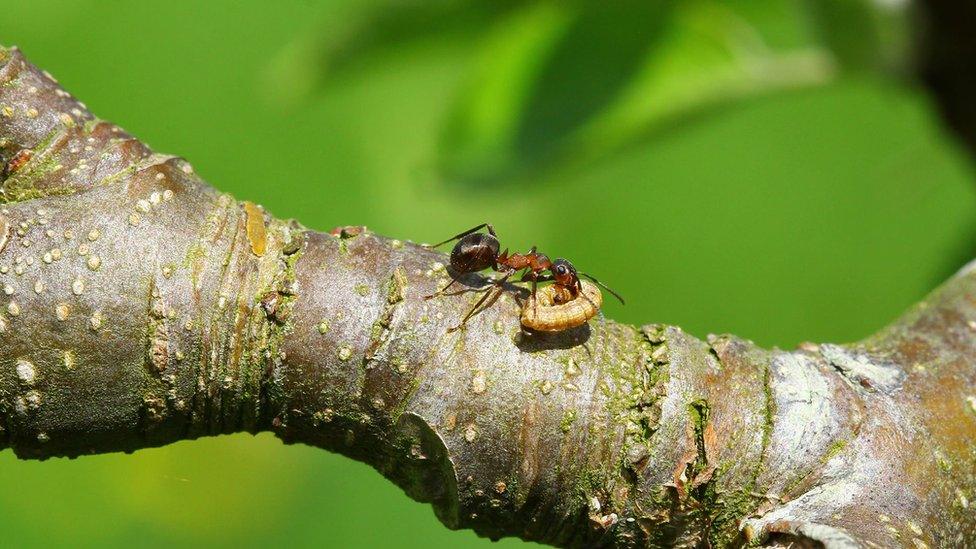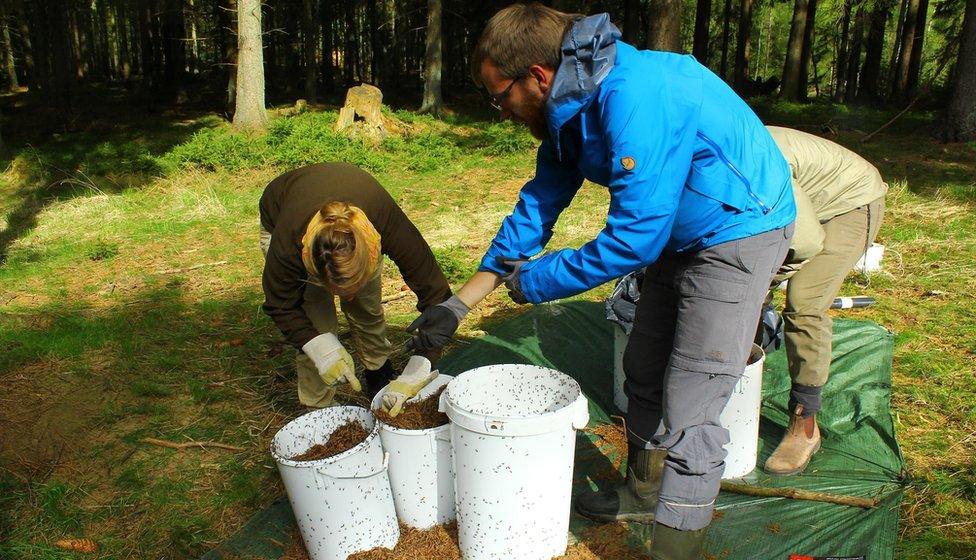Ants deployed to help Danish fruit farmers
- Published

Wood ants devour moth larvae before they can cause too much damage
They're often thought of as pests, but ants are now being used to help organic fruit farmers in Denmark.
A team from Aarhus University hopes the ants will gobble up insect pests that cause damage to apple trees during the spring - namely moth larvae which feast on their leaves. Researchers have been relocating forest-based colonies into an orchard on the eastern Djursland peninsula as part of a new study, the Copenhagen Post reports, external.
"We are moving a large ant colony from a pine forest and will spread a number of smaller colonies, each having its own queen, around the apple plantations," says senior researcher Joachim Offenberg from the Department of Bioscience. They had to make the forest ants feel at home, so they've brought along pine needles to enable the insects to build their colonies, he says.
In August 2015, Mr Offenberg published a research review, external which suggested that weaver ants are as effective as synthetic pesticides in reducing pest damage and improving crop yields, but at lower costs.
While transplanting the ants is done with buckets and shovels, searching for the egg-laying - or ovipositing - queens can be a more delicate business. "It is done very carefully, by searching portions of the sand thoroughly with tweezers to ensure not to harm the ovipositing queens," researcher Jesper Stern Nielsen tells the BBC. He adds that the team has also moved colony fragments into Christmas tree plantations.
Ants are particularly useful because they're wide awake while other moth predators are still in winter hibernation, the paper notes. When they're not snacking on moth larvae the ants will still be helping the orchard to flourish, albeit in a slightly unappetising way - their urine and excrement will apparently help to fertilise the trees.

The researchers are adept at dealing with wood ants, seen here during an earlier nest relocation
Next story: China's 'Great Firewall' blocks its creator
Use #NewsfromElsewhere to stay up-to-date with our reports via Twitter, external.